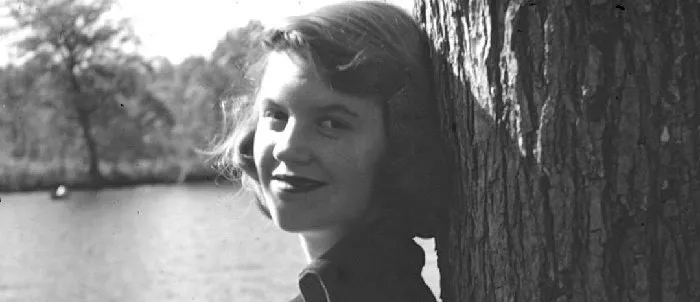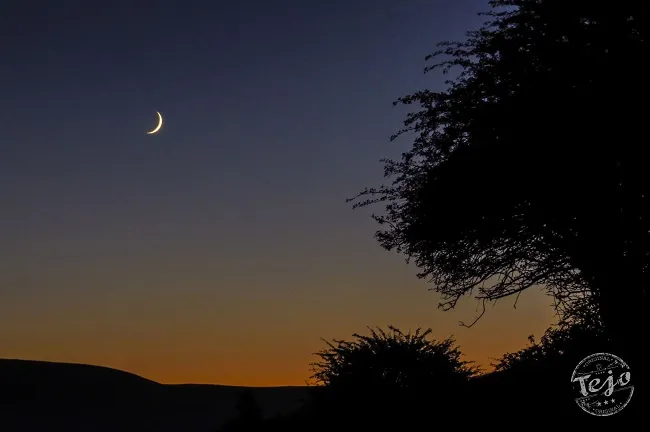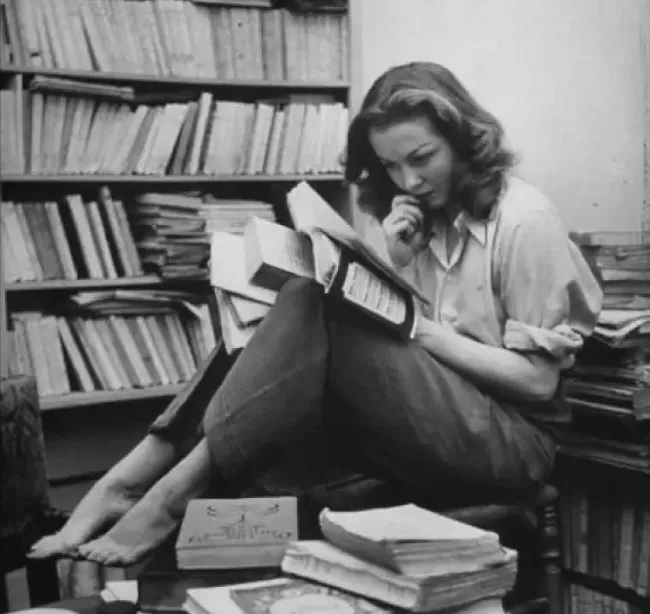Son hoy 90 años del nacimiento –27 de octubre de 1932– de la poeta estadounidense Sylvia Plath, escritora de una obra muy singular que la coloca entre las grandes voces femeninas del siglo XX en la poesía de habla inglesa. Su vida y, consecuentemente, su escritura literaria, estuvo signada, desde su juventud, por el tormento de la enfermedad mental (síndrome bipolar), pero también por la muerte (del padre) y la separación (de su marido, el poeta inglés Ted Hughes). Todo confluyó en la decisión de suicidarse, consumada en 1963, a la edad de 30 años.
Today is the 90th anniversary of the birth - October 27, 1932 - of the American poet Sylvia Plath, writer of a very singular work that places her among the great female voices of the twentieth century in English-language poetry. Her life and, consequently, her literary writing, was marked, since her youth, by the torment of mental illness (bipolar syndrome), but also by death (of her father) and separation (from her husband, the English poet Ted Hughes). It all came together in the decision to commit suicide, consummated in 1963, at the age of 30.

Su obra está compuesta por dos libros publicados en vida, uno de poesía: El coloso, de 1960, y su única novela de carácter autobiográfico: La campana de cristal, en 1963. A dos años de su muerte fue publicado su poemario Ariel (1965), considerado el más importante, y posteriormente, ordenados por su esposo y su madre, otros libros de poesía, diarios y cartas.
Su escritura, como he dicho, está habitada por sus tormentos personales, donde la infancia, la relación con el padre y la madre, y luego su matrimonio e hijos, ocupan un lugar central; de ahí lo confesional, mas no lo hace en un lenguaje directo y anecdótico, sino en una elaboración –quizás influida por su realidad psíquica– configurada verbalmente de imágenes libres (incluso, surreales), una fraseología discontinua, y una fuerte carga emotiva de gran sobriedad expresiva.
En sus poemas advertiremos ese sordo rumor del sentido de la pérdida (o de la pérdida del sentido, en el decir de un crítico). Como refiere Marcotrigiano en su estudio de los poetas suicidas, citando a Kaufman,
la naturaleza de su oficio los obliga no solamente a trabajar en soledad, sino que su área de trabajo es totalmente emotiva, obligándolos muchas veces a adentrarse en un mundo introspectivo e íntimo del cual posiblemente no siempre salgan ilesos.
Leí por primera vez a esta desconcertante poeta en una modesta edición hecha por Fundarte (Caracas) en 1981, precedida por un lúcido prólogo escrito por la estimada Julieta Fombona, de quien es la traducción de los poemas. También recuerdo haber visto en 2004 el film Sylvia, un buen acercamiento ficcional a la vida de la escritora, realizado por Christine Jeffs y en el que el personaje de Plath es caracterizado por Gwyneth Paltrow (Si están interesados en ver el filme, pueden ir a este enlace de Youtube, subtitulado en español.)
============
His work consists of two books published during his lifetime, one of poetry: El coloso, 1960, and his only autobiographical novel: La campana de cristal, in 1963. Two years after her death, her collection of poems Ariel (1965) was published, considered her most important, and later, other books of poetry, diaries and letters were ordered by her husband and her mother.
Her writing, as I have said, is inhabited by her personal torments, where childhood, the relationship with her father and mother, and later her marriage and children, occupy a central place; hence the confessional, but not in a direct and anecdotal language, but in an elaboration -perhaps influenced by her psychic reality- verbally configured of free images (even surreal), a discontinuous phraseology, and a strong emotional charge of great expressive sobriety.
In his poems we will notice that dull rumor of the sense of loss (or of the loss of meaning, in the words of a critic). As Marcotrigiano refers in his study of the suicidal poets, quoting Kaufman,
the nature of their craft obliges them not only to work in solitude, but their area of work is totally emotional, often forcing them to enter an introspective and intimate world from which they may not always emerge unscathed.
I first read this disconcerting poet in a modest edition made by Fundarte (Caracas) in 1981, preceded by a lucid prologue written by the esteemed Julieta Fombona, whose translation of the poems it is. I also remember having seen in 2004 the film Sylvia, a good fictional approach to the writer's life, made by Christine Jeffs and in which Plath's character is played by Gwyneth Paltrow (If you are interested in watching the film, you can go to this Youtube link.

A continuación, como suelo hacer, reproduciré dos poemas relativamente breves de Sylvia Plath, que acompañaré con un sucinto comentario.
In the following, as I usually do, I will reproduce two relatively short poems by Sylvia Plath, which I will accompany with a succinct commentary.
La luna y el tejo
Esta es la luz de la mente, fría y planetaria.
Los árboles de la mente son negros. La luz es azul.
Las hierbas se lamentan a mis pies, como si yo fuera Dios,
hiriendo mis tobillos murmuran su humildad.
Espirituosas brumas humeantes habitan este lugar
separado de mi casa por una hilera de lápidas.
Simplemente no puedo ver si hay un sitio adónde ir.La luna no es una puerta. Es una cara por derecho propio,
blanca como un nudillo y terriblemente turbada.
Arrastra al mar detrás de sí, como un crimen oscuro; y está en calma
con el bostezo en O del total desencanto. Yo vivo aquí.
Dos veces cada domingo las campanas sobresaltan el cielo-
ocho grandes lenguas afirmando la Resurrección.
Finalmente, ellas proclaman con sobriedad sus nombres.El tejo apunta hacia arriba. Su forma es gótica.
Sus ojos se elevan por sobre él, y encuentran a la luna.
La luna es mi madre. Ella no es dulce como María.
Sus vestiduras azules sueltan pequeños murciélagos y lechuzas.
Cómo desearía creer en la ternura-
el rostro de la efigie, dulcificado por las velas,
inclinándose, sobre mí en particular, con ojos indulgentes.¡He caído tanto! Las nubes están floreciendo,
azules y místicas sobre el rostro de las estrellas.
Dentro de la iglesia, los santos serán todos azules,
flotando con sus pies delicados sobre los bancos fríos,
sus cabezas y sus caras rígidas de santidad.
La luna no ve nada de esto. Ella es calva y salvaje.
Y el mensaje del tejo es negrura -negrura y silencio.

The moon and the yew tree
This is the light of the mind, cold and planetary
The trees of the mind are black. The light is blue.
The grasses unload their griefs on my feet as if I were God
Prickling my ankles and murmuring of their humility
Fumy, spiritous mists inhabit this place.
Separated from my house by a row of headstones.
I simply cannot see where there is to get to.The moon is no door. It is a face in its own right,
White as a knuckle and terribly upset.
It drags the sea after it like a dark crime; it is quiet
With the O-gape of complete despair. I live here.
Twice on Sunday, the bells startle the sky —
Eight great tongues affirming the Resurrection
At the end, they soberly bong out their names.The yew tree points up, it has a Gothic shape.
The eyes lift after it and find the moon.
The moon is my mother. She is not sweet like Mary.
Her blue garments unloose small bats and owls.
How I would like to believe in tenderness –
The face of the effigy, gentled by candles,
Bending, on me in particular, its mild eyes.I have fallen a long way. Clouds are flowering
Blue and mystical over the face of the stars
Inside the church, the saints will all be blue,
Floating on their delicate feet over the cold pews,
Their hands and faces stiff with holiness.
The moon sees nothing of this. She is bald and wild.
And the message of the yew tree is blackness – blackness and silence.
============
De su libro Ariel, podemos percibir en este hermosamente triste poema de Plath gran parte de su imaginería fundamental, en especial la luna, personificada de modo peculiar. Podría conjeturarse que el tema es la muerte vista desde los ojos de una infancia revisitada, desde una nostalgia de aire religioso, que se expresa en imágenes –la mayoría, oscuras– tocadas de afectividad y extraño color, como el azul.
From her book Ariel, we can perceive in this beautifully sad poem by Plath much of her fundamental imagery, especially the moon, personified in a peculiar way. It could be conjectured that the theme is death seen from the eyes of a childhood revisited, from a nostalgia of religious air, which is expressed in images -most of them dark- touched with affectivity and strange color, such as blue.

Palabras
Hachas
Tras cuyo golpe la madera resuena,
¡Y los ecos!
Ecos que se alejan
Desde el centro como caballos.La savia
Se hincha como lágrimas, como el
Agua esforzándose
Por re-establecer su espejo
Sobre la rocaQue cae y gira,
Una calavera blanca,
Carcomida por hierbajos.
Años más tarde
Las encuentro en el camino —Palabras secas y sin jinete.
El incansable ruido de cascos.
Mientras
Desde el fondo del pozo, astros fijos
Gobiernan una vida.
***
Words
Axes
After whose stroke the wood rings,
And the echoes!
Echoes traveling
Off from the center like horses.The sap
Wells like tears, like the
Water striving
To re-establish its mirror
Over the rockThat drops and turns,
A white skull,
Eaten by weedy greens.
Years later I
Encounter them on the road-Words dry and riderless,
The indefatigable hoof-taps.
While
From the bottom of the pool, fixed stars
Govern a life.
============
En este poema encontramos un particular sentido dado a la palabra. Kafka había expresado que “un libro tiene que ser el hacha para el mar helado que hay en nosotros” (citado por el poeta Rafael Cadenas); siento algo de esa hacha en el poema de Plath, en el cual la palabra puede ser vida (savia) y, a la par, sequedad e inestabilidad, pues en ellas pervive la contradicción que mora en el lenguaje, como en todo lo humano. De modo que la palabra, incontrolable, está como “astro fijo” en nuestra vida.
In this poem we find a particular sense given to the word. Kafka had expressed that "a book has to be the axe for the frozen sea in us" (quoted by the poet Rafael Cadenas); I feel something of that axe in Plath's poem, in which the word can be life (sap) and, at the same time, dryness and instability, because in them survives the contradiction that dwells in language, as in everything human. So the word, uncontrollable, is like a "fixed star" in our life.
Referencias | References:
Plath, Sylvia (1981). Poemas. Caracas: Fundarte.
Marcotrigiano, Miguel (2012). Poesía y suicidio en Venezuela. Caracas: Fundación Celarg.
https://es.wikipedia.org/wiki/Sylvia_Plath
https://en.wikipedia.org/wiki/Sylvia_Plath
https://es.wikipedia.org/wiki/Sylvia_(pel%C3%ADcula_de_2003)
https://en.wikipedia.org/wiki/Sylvia_(2003_film)
Para acceder a poemas de Sylvia Plath:
https://www.zendalibros.com/5-poemas-de-sylvia-plath/
https://www.poetryfoundation.org/poets/sylvia-plath

Gracias por su lectura | Thank you for reading.




